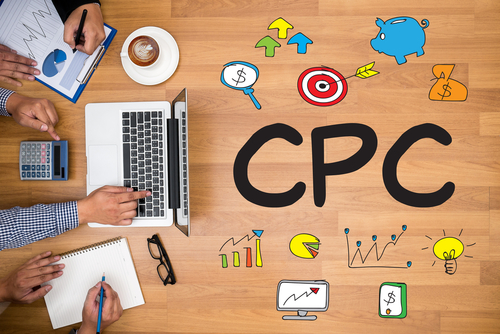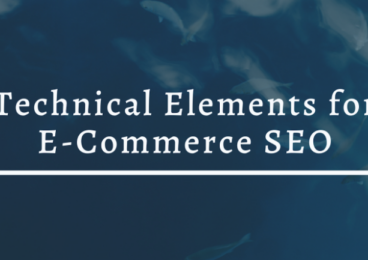 Reading Time: 4 minutes
Reading Time: 4 minutesIn days gone by, it was possible for companies to complete entire marketing campaigns with the use of ink and paper. The introduction of radio media added the necessity for audio advertising just as television did for video advertising years later. We can view contributions of cost-per-click advertising, or CPC, in the digital age very similarly – CPC has changed the entire landscape of advertising and marketing as we know it.
As with any other major type of advertising throughout history, companies must develop an effective CPC strategy to ensure efforts and money spent will result in increased customer engagement with the product or services offered. This, in turn, leads to increased conversions, improving your return on investment and your bottom line. What is CPC? What is a good CPC strategy? What steps can you take to make it successful?
What Is CPC?
CPC advertising – also known as pay-per-click advertising or PPC – is a marketing strategy in which marketers use strategic advertisements on search engine result pages or other landing pages instead of using other means of advertising to drive website traffic organically. In CPC advertising, marketers bid on the odds that users entering particular keywords will need or desire to click on an ad for their page, or that users of social media or other pages will click on displayed media ads. There is no charge for CPC ads until a user clicks on the ad.
What Does a CPC Strategy Consist Of?
Overall, your CPC strategy is your plan for how to spend and allocate your CPC dollars. First and foremost, a good CPC strategy will determine your company’s goals for the campaign. Then, it will find the most effective space to place your CPC ads, assess the keywords targeted, and target the lowest cost for your desired action.
There is no one outline for an effective CPC strategy – the final conversion of a customer differs among industries, and even within the same industry your company’s goals will differ from your competitor’s. You must perform analysis on your audience, your keywords, and your ad spend to determine the best route to take regarding CPC. Even then, the strategy is not complete.
Claim Your Free Paid Media Audit
Ten Essentials
A great deal of analysis goes into crafting an effective CPC strategy, and even further analysis into adjusting as you go along to continue to effect the most positive campaign. Read on for ten essentials to a CPC strategy:
- Choose your platform. While CPC occurs on multiple platforms, the focus here will be on the search engine result page (SERP) CPC campaigns. Most searches are performed on Google, though a good many are performed on Bing; marketers are smart to develop CPC strategies for both.
- Do your research. For any keyword-based CPC campaign to be successful, you must first find the keywords most likely to result in users clicking on your ads. This takes research into your target market and of the CPC process itself. In general, any keywords you bid on should be closely related to your product or service. Google has a free, Adwords Keyword Planner to help you determine the keywords that most frequently result from an interest in your products.
- Expand your keyword list. After your initial selection of high-volume keywords, you must consider a wider range of relevant keywords that will lead to conversions less often than your primary keywords. This range of keywords should cover a comprehensive list of all of the keywords that could possibly lead a user to click on your ad, and will thus result from a wider range of searches than your initial, major keywords. In addition, these keywords will come at a lower cost per click than the most frequently used keywords.
- Cost analysis. As mentioned, more frequently searched keywords will cost you more per click. On average, many experts suggest a 5:1 revenue vs ad spend ratio. So, you’ll need to calculate your average sale to compare to your ad spend. If, on average, a converted customer spends $1,000 per transaction, expect to spend about $200 in CPC to get them to convert. Of course, this ratio can change based on your company’s needs, but an ad spend that’s too high may indicate that CPC is not worth the price of your average sale.Most CPC sales operate on a bid basis. Depending on your average sale and your average conversion rates, you can calculate your expected bid per click. If your average sale is $1,000 and you can convert one out of every 50 clicks at a 2% conversion rate, you want to target about $4 per click.
- Continuous analysis. After you’ve set your keyword lists and bids, you cannot afford to stop there. In fact, you should spend at least 20 minutes per week running analysis on your keyword selection. Determine which are working, which aren’t, and which of these needs further addressing.
- Eliminate ineffective keywords. “Ineffective keywords” usually translates into “costly keywords.” Identify those keywords that are costing you more than your target amount per click, but are producing relatively few conversions. Consider eliminating these keywords if consumers continue to click without converting to a sale.
- Split your ad groups. As you continue your research, group like keywords together to target more specific landing pages. Your ad will not need to be as broad if you can target it toward a specific product or set of products on your page. In addition, you will improve your quality score by staying relevant.
- Add negative keywords. Negative keywords are keywords that prevent your site from appearing in searches including them. For example, if you sell baseball bats, you may want to add terms related to the flying mammal to your negative keyword list. This prevents you from paying for clicks for searches not relevant to your product.
- Optimize your website. If you’re getting plenty of clicks that don’t lead to sales, you must determine if your website is turning away potential buyers. Analyze your content and ensure that it is high quality and serves a purpose for your audience. If it is not speedy, easy to navigate, or has an overly complicated checkout process, you may be losing buyers.
- Evaluate the return on your investment. If your keyword groups aren’t promoting enough clicks that lead to sales conversions, your CPC could be costing more money than it’s worth. You can determine this on your own or via a provider’s CPC or PPC auditing service to help you analyze what you can do to achieve more, productive, sales-producing clicks.
At Vizion Interactive, we have the expertise, experience, and enthusiasm to get results and keep clients happy! Learn more about how our status as a Google Partner, along with our PPC Management, Google Shopping Ads, Social Media Advertising, Amazon Advertising, and other Paid Media services can increase sales and boost your ROI. But don’t just take our word for it, check out what our clients have to say, along with our case studies.




